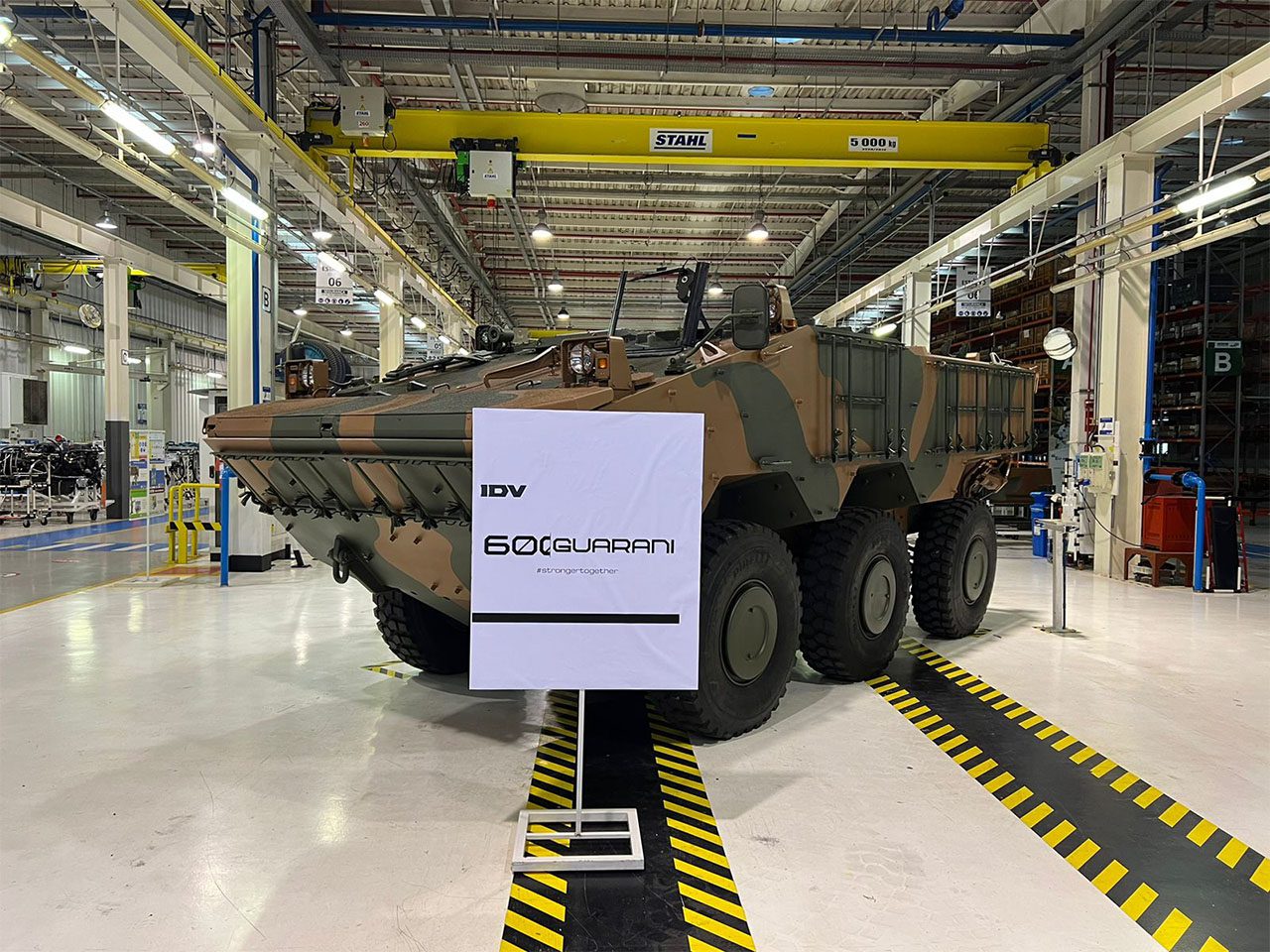TC Cav Rodrigo Schmidt Rodrigues
Since the publication of the National Defense Strategy, Brazil has been able to identify clear objectives around the needs related to aspects of Security and Defense. The definition of the Strategic Environment, as well as the assignment of specific tasks to each of the Singular Forces (the Navy with the nuclear sector; the Army with cybernetics; and the Air Force with the aerospace sector), were factors that were able to guide the objectives for the development of a defense mentality in the country.
In addition, the definition of clear objectives on the subject brought demands for the definition of strategic actions, as well as the understanding that Defense is a matter of State, adding all the intuitive multidisciplinarity that permeates the subject.
In fact, in 2016, the Brazilian Industrial Development Agency (ABDI) and the Institute for Applied Economic Research (IPEA) developed in partnership the Mapping of the Defense Industrial Base, which provides a set of strategic information for the sector. The result of this effort is a powerful compendium, covering light and heavy weapons; explosives; Command and Control systems; naval, land and military aeronautical platforms; defense-oriented space systems; and equipment for individual use. As can be seen, Brazil’s security and defense mentality has matured significantly.
Awareness of the strength of Brazil’s territory – with more than 8.5 million km2, more than 16,000 km of borders with 10 South American countries and more than 7,000 km of coastline on the Atlantic Ocean – has led to an understanding of the imperative aspect of developing a Security & Defense consciousness. Thus, the increase in the Defense Industrial Base (DIB) emerges as an element capable of providing the singular forces with the necessary tools to defend national sovereignty, as well as opportunities to generate wealth through interaction between the Armed Forces, the business community and academia.
As far as the Armed Forces are concerned, in order to fulfill their constitutional missions, a competitive defense industry represents an element that induces transformation, adding operational capabilities, evolving in line with the development of the art of war, and ratifying their insertion into the Knowledge Age, in contrast to the previous format of the Industrial Age.
For the business community, a strengthened IDB provides opportunities for the circulation of wealth through the generation of jobs and the profitability of products that will contribute to national security.
The Academy, for its part, is responsible for achieving the multidisciplinarity mentioned above, since it integrates civilians and military personnel in the development of defense products necessary for the fulfillment of the Armed Forces’ constitutional mission, creating the capacity to deliver projects for the production of Military Use Material Systems to the national industry.
However, it is worth considering monopsony as an obstacle to the synergy described above. The specific nature of defense products can lead to a situation in which entrepreneurs feel discouraged from investing large sums of money to sell exclusively to the Armed Forces.
In order to avoid such a situation, the following recommendations should be observed:
- The search for dual technologies is a factor capable of fostering BID, since it can offer products applicable both to defense and to various purposes common to society, enabling continuity in a production chain;
- Observance of the consolidated work of the Mapping of the Defense Industrial Base, carried out by the partnership between IPEA and ABDI, using it as a guiding element for the development of defense capabilities in Brazil;
- Promoting increased interaction between the Academy and defense scholars from the Armed Forces, such as that being developed by the Meira Mattos Institute of the Army Command and Staff School (ECEME), which brings together civilian and military researchers in scientific research in defense management and peace and war studies;
- Compliance with Law No. 12.598/2012, which establishes mechanisms to promote the Brazilian defense industry, favoring the creation of hybrid institutional arrangements, corroborating the participation of private initiative and the Armed Forces in the development of defense products, assisted by permanent research conducted by the Academy;
- Increasing the mentality of security and defense as a state issue, and not a private matter for the Armed Forces, providing opportunities for the interactions described above, as well as the synergy capable of, at the same time, generating wealth and increasing operational capabilities for national defense; and
- Maintaining the activities of military visits to friendly nations, seeking to absorb knowledge related to doctrine and obtaining SMEM, whether through research and development or the acquisition of off-the-shelf systems.
Finally, it is essential to develop the understanding that transforming the Armed Forces means disruption, i.e. obtaining new operational capabilities, in addition to the modernization and repowering processes.
TC Cav RODRIGO SCHMIDT RODRIGUES, born in Porto Alegre/RS on September 30, 1978. He joined the Army in 1996, at the Army Cadet Preparatory School (EsPCEx), in Campinas/SP. He was commissioned as a Cavalry Officer on November 25, 2000, at the Agulhas Negras Military Academy (AMAN). He completed the Officer Training Course at the Officer Training School (EsAO) in 2009. He completed the Command and General Staff Course at the Army Command and General Staff School (ECEME) in 2019. As a staff officer, he served as Chief of the 3rd Section of the 3rd Mechanized Cavalry Brigade and Commander of the 5th Mechanized Cavalry Regiment. He holds a master’s degree in military sciences from the esao and a doctorate in military sciences from the meira mattos institute at eceme. He is the author of the thesis military transformation in Germany: initial conditions, preliminary results and current countertrends. Schmidt is a researcher in International Strategic Studies with an emphasis on Military Transformation, German Strategic Defense Thinking and the Defense Industrial Base. He currently serves in the 4th Subchief of Staff of the Army.
